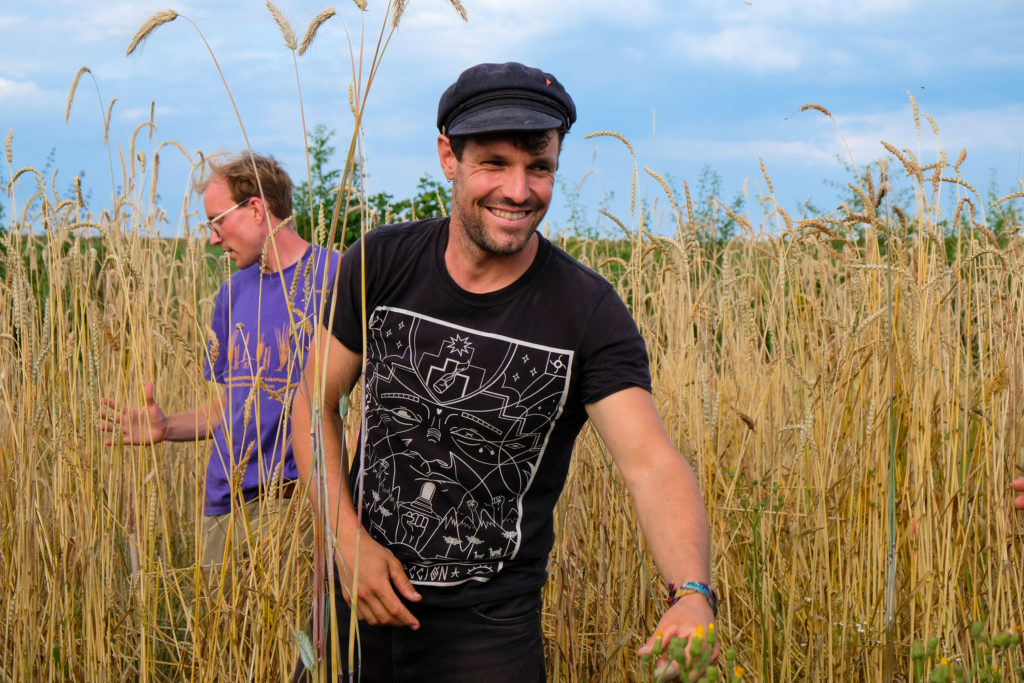
This article first appeared on the seeds4all website, part of the ARC2020 family.
Belgium is famous for beer. And even being a small country, the multinational Belgian brewery industry is a big player on the world market. However, that beer is a fast brew with almost no ingredients from Belgium. What runs down the throats of millions around the world is brewed within six weeks. Traditional Belgian beer like Lambic and Geuze needs up to three years to mature. Yes, that is a long time, but there is a good reason for slowing down a bit: taking good care of farmers, nature, a brewing tradition, preservation and development of cereal diversity, and a very special taste.
Brouwerij 3 Fonteinen based in Lot near Brussels does all this. Or better: all people involved in this outstanding project, brewers, farmers, scientists, beer drinkers and many more have agreed to re-animate this special taste and identity of the Pajottenland region.
“We have launched this project out of respect for the local character of our brewery, we wanted to use traditional wheat and barley varieties for our brews. Industrial farming and brewing have almost lost what took our peasant ancestors centuries to develop. We see a treasure in our countryside and in our farmers which we want to preserve and use“, says Lucas Van den Abeele, agroecologist and coordinator of the Cereal Collective.
A brewery’s quest for traditional brewing varieties
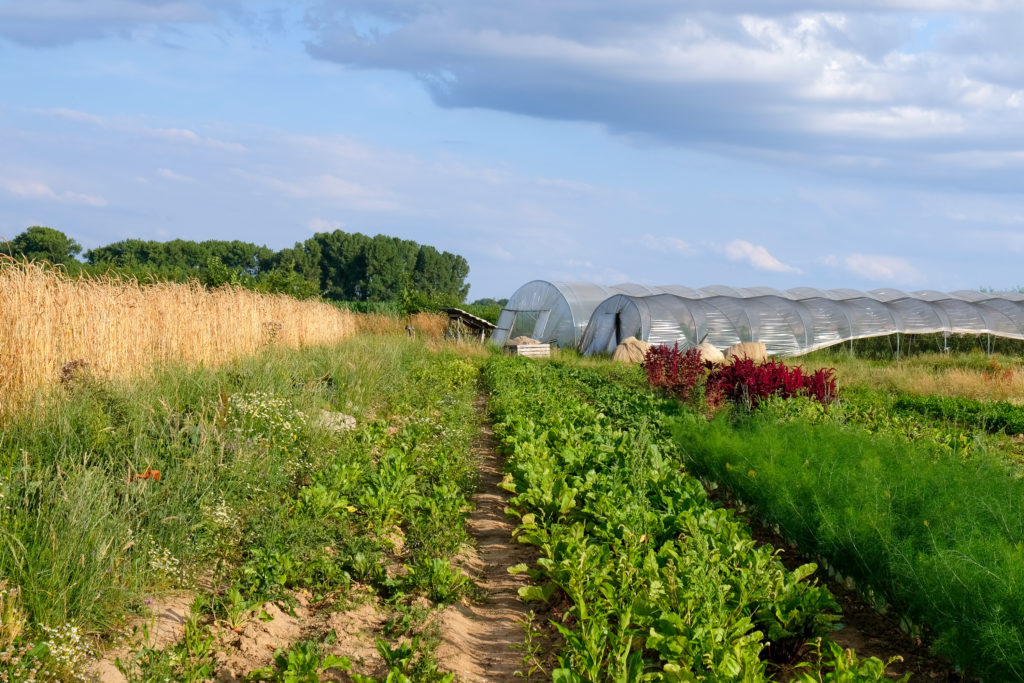
The story how the brewery became a for-runner of a revival of Belgium beer tradition and a fair deal with farmers, goes like this: “One summer’s day, Armand, founder of the 3 Fonteinen brewery, slapped the kitchen table with the flat of his hand and swore with his usual flippancy: “Potferdek, le Petit Roux du Brabant, that’s the wheat we need, we’re going to find it! “. *
Petit Roux du Brabant was a variety grown in the region with specific qualities for beer brewing, which disappeared from the fields. In the past, Brabant abounded in excellent brewing barley and local wheat populations. Until the 1960s, these cereals were used to make the quintessential local beers, Lambic, Geuze and Kriek.
„Today, less than 3% of the cereals used by Belgian brewers are of Belgian origin, Lucas explains. The disappearance of our malting barley must be traced back to the industrialization of the agricultural and the food system. The Senne valley, Brussels and Pajottenland have lost part of their authentic beer style, a piece of local culture, but also the link with the farmers. The Lambic region used to have more than 90 lambic brewers and 250 Geuze blenders. The fact that only a handful remain today speaks volumes.“
Gaston and Armand Debelder, founders of the Brouwerij 3 Fonteinen set out back in 2018 to find the local wheat and barley. It wasn’t long before they landed at farmer Tijs Boelens, a fan of local varieties and populations, which he researches and cultivates in his fields in Pepingen. (picture) The third musketeer of local beer revival was Lucas, an agro-ecology student at the time, who was keen to develop a network of farmers in Pajottenland.
Everything developed very quickly. Lucas came to work full-time at Brouwerij 3 Fonteinen and today coordinates the collaboration between a dozen farmers and the brewery.
Together, they grow around 40 hectares of wheat and barley at a mutually agreed price. The network takes care of organising the cleaning, storage and malting of the grain, and of course the link between the fields and the brewing vats.
Reviving Brabant’s ancient cereal varieties
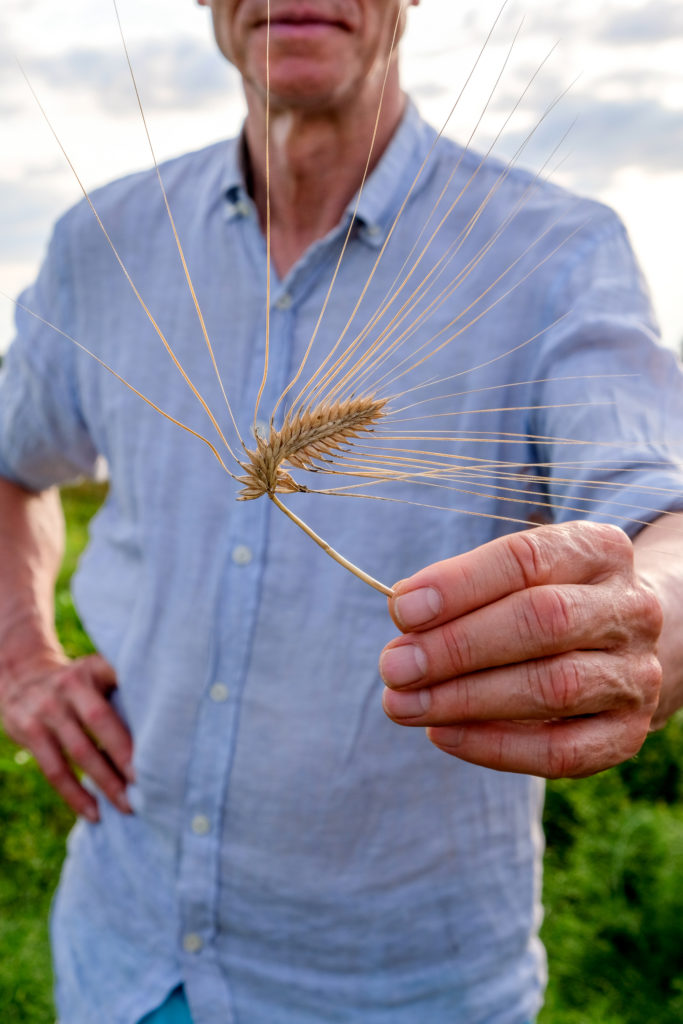
The Cereal Collective aims to restore the local link between farmer and brewer, between grain and Geuze, between the land and its inhabitants. Because a terroir is much more than a basket of regional products. Terroir means history, culture, community and economy all rolled into one. Thanks to a dozen local farmers, a solid and resilient network is now in place. This involves much more than the classic ‘grow and sell’ formula:
“We carry out in-depth research and selection on 25 varieties of ancient barley and 50 varieties of local wheat. We propagate them in the fields and select the most suitable ones with farmers before testing them in Lambic. We work in the field and in the brewery, so that we can match the techniques and learning points in the field to the dynamics in the brewery (and vice versa). We mutually agree on which varieties to sow and where to plant them, in line with their specific characteristics. We seek a stable, long-term partnership between farmer and buyer, with a balanced distribution of risk. We are driven by the same vision of sustainable development: a mutual appreciation of each other’s work and an absolute focus on quality.
The wide range of crops and varieties that we sow in our region means that we can bring back much-needed biodiversity to our fields. In addition, we are initiating agroforestry projects with our partner farmers to produce sour cherries, plums and even rhubarb in their cultivated plots. The ultimate aim is to find a selection of cereal varieties suited to the Brabant’s climate and loamy soil; cultivation methods that respect the soil and people‘s specific customer needs – maltsters and breweries, millers and bakers.“*
A fair deal for a good drink – remunerative price with no bad aftertaste
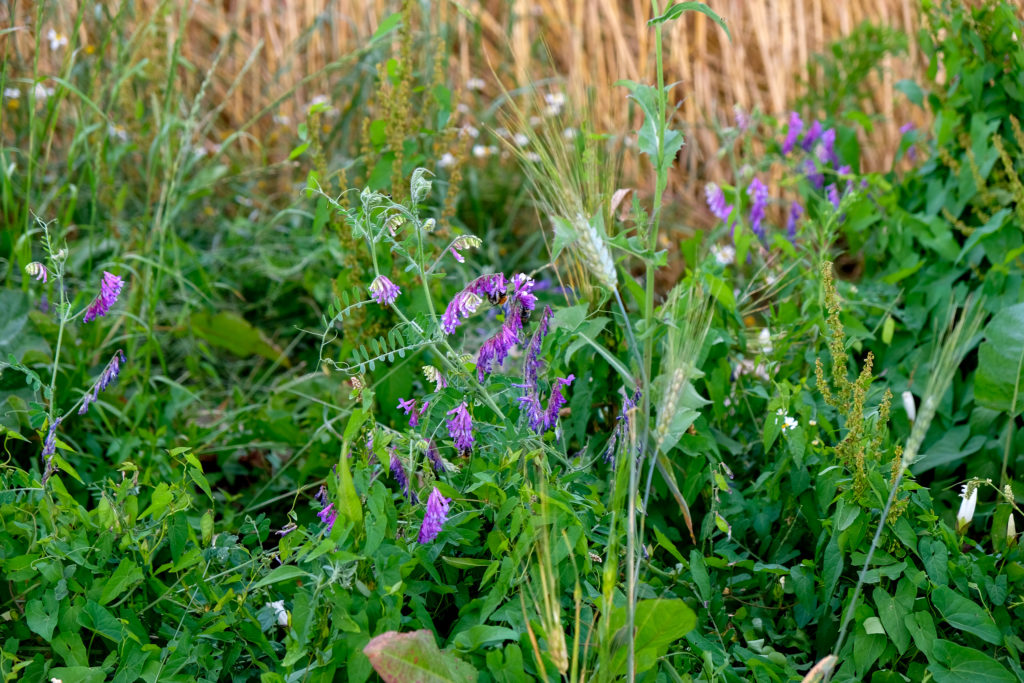
Contrary to the current focus on the lowest prices of raw materials for brewing, Brouwerij 3 Fonteinen offers a fair deal for a remunerative price. The price paid to the farmer is completely independent of the world market and any speculation it may undergo.
In order to motivate farmers to use the specific cereal varieties and populations which the brewery wishes to use, the contracts with the brewery offer an income guarantee. The price is partly a per hectare payment which is calculated based on average cost of the production in a regular year. It is paid independently from the fluctuation of market prices. If the market price is lower than the hectare price, the farmer still gets his costs covered. If the price is higher, he or she can realise this extra income. On top of that, there is a price per ton, depending on the quality of the cereal. For good quality the farmer gets both hectare and ton price; for bad quality he only gets hectare price.
Farmers stay the owner of the harvest until the brewery buys it. If the quality of the cereals does not reach the demand of the brewery, farmers still get the ha payment and my use the cereals for feeding their animals. As a specific support the brewery has purchased a cereal sorter and grain silos as common facility.
Moving Organic
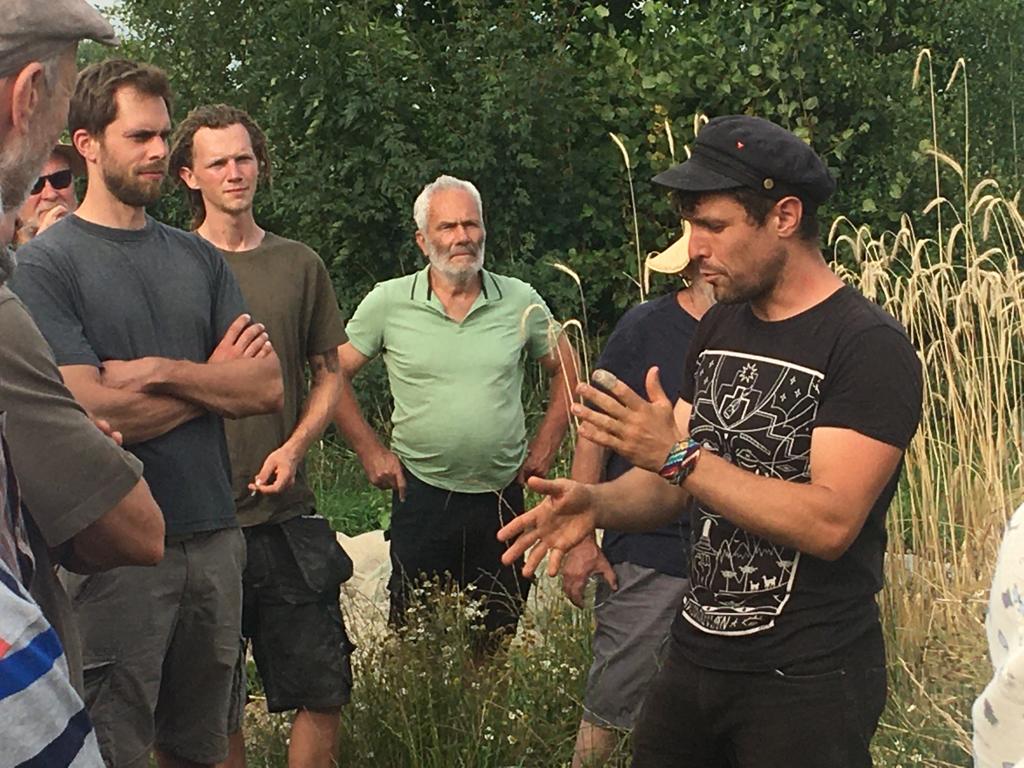
Initially, the network brought together organic and conventional farmers, the latter having to respect the non-use of plant protection products and chemical fertilisers. In the meantime, they have come a long way, and today all the farmers in the network comply with organic farming specifications, so that brewers have a sufficient supply of certified organic grain.
One of the strengths of this community is the exchange of experience and the loan of equipment with a common goal: agro-ecological production that takes care of the soil, biodiversity, cultivation techniques and the farming profession. To date, the network has around ten organic farmers, all within a 25-kilometre radius of Brouwerij 3 Fonteinen. A total of 40 hectares are cultivated, including 30 hectares of barley and 10 hectares of wheat.
What’s special about the Cereal Collective is the joint quest by farmers, processors and researchers for suitable varieties. They determine the criteria themselves. The tests are not carried out in research centres or laboratories, but in the field, the brewery or the bakery. This is because farmers, brewers and bakers are experts in their field and learn a great deal from each other. So they meet regularly in the fields or in the barrel room to talk about their experiences, their trials and their mistakes…over a glass of Geuze!
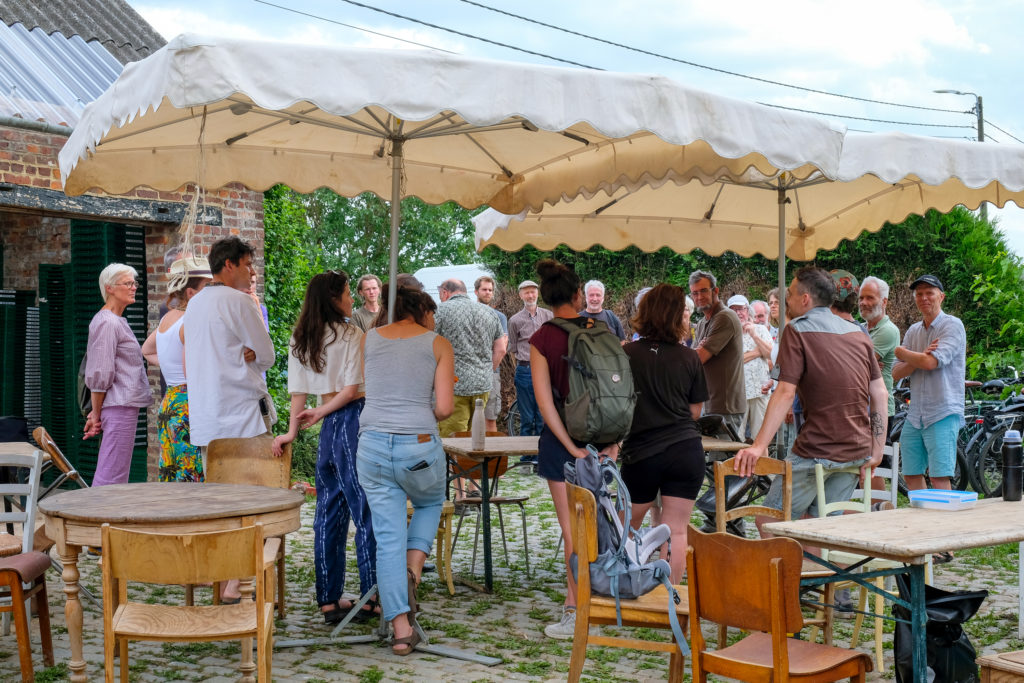
In the meantime, around fifty varieties and populations of local wheat have already been tested in the fields, using different growing techniques. The same applies to barley varieties, for which Brouwerij 3 Fonteinen is examining the malting properties and brewing results.
Ultimately, we hope to identify the varieties that are best suited to both farmers and brewers. As well as crop rotation between cereals and vegetables, some farmers are also turning to agroforestry. This means that a plot of land is planted not only with annual crops, but also with crops that are profitable in the long term, especially fruit trees.
For the farmer, this means a better spread of risk. And for many buyers – lambik brewers, of course, but also bakers – it enriches the range on offer.
(* courtesy of quoting the Brouwerij 3 Fonteinen website)
“Slow transition“ – Interview with Philippe Loeckx, Wallonia beef and cereal farmer, member of the Cereal Collective
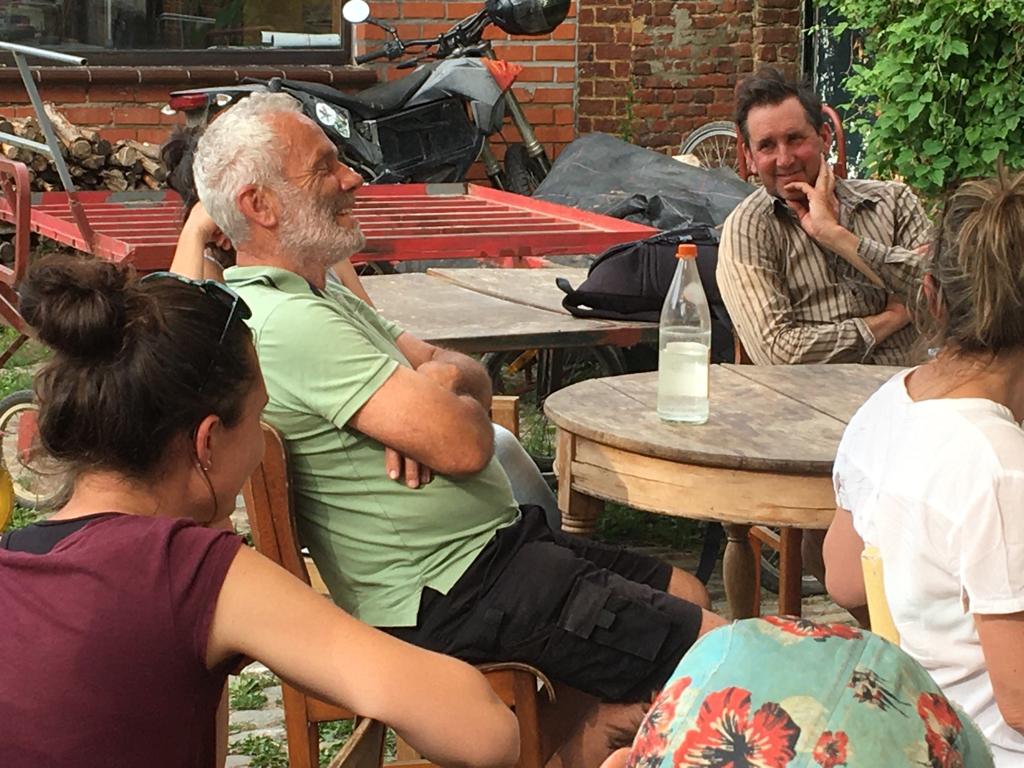
Seeds4all. You seem to be the typical peasant/paysan everyone in European Agriculture Politics idealises, – not more than 50 hectares and a nice mixture of everything. But that story seems to be on the road of extinction for some time already. 70 % of European farmers are over 55 like you. What about your retirement and transition to the next generation? Is it working?
Philippe. Yes I am slowly preparing for my retirement. But the key word is slowly, step by step. And yes, I should really be the ideal farmer for European farm policies, because if we had more farmers like me, everyone would be better off, we would have more young people in farming with a decent income, better animal welfare, a healthier environment and better food. Unfortunately, the Common Agricultural Policy of the EU ignores this truth.
When I started my life as a farmer, they said at the agronomic faculty that farms smaller than 55 ha were not viable. I started with 45 hectares thirty years ago, and today I work with 36. I can do that because I decided to run a mixed farm with crop, animals, vegetables, fruit and my own feed production. I believe farmers must diversify their production and become much more independent from the agro-industry, the seed companies, the feed importers, the chemical industry but also the big food industry, otherwise they will indeed disappear.
The argument for bigger and more specialized farms is that they can be more productive.
Philippe. Yes and that is the fairy tale. EU statistics say that 12% of farms in Europe are still peasant and family farms like mine and they produce 32% of production. So what is the point? On top of that we have less problems with dept and we employ more people. If you take the example of my farm, I have a highly diverse production which is very well integrated, so I produce high quality on very different levels. I do not depend on the world market and highly volatile prices.
When I started, I followed the ideas of Michel Sencier *, bringing back high diversity onto the farm with cereals, vegetables, cattle, pigs and poultry. Today I mainly focus on extensive cattle breeding with la Blonde d’Aquitaine. I also produce high quality protein feed for neighbor farmers, princess green beans, rape seed, triticale, oats, peas and the special wheat varieties for Brouwerij 3 Fonteinen.
That sound like quite a full time job. Where is the slow retirement then?
Philippe. I am lucky, I found three young new farmers taking over some of my land for their own new farming projects. One is into grape production, the other into vegetables and the third into small fruit. There is even one more envisaging sheep production. They all step in slowly, I can help them if they wish with some advice, but they run their business independently. That is what I mean by slow transition. We are still working in the same spirit of cooperation for more independence. I do my job at UNAP** as advisor for organic farmers, but I am still practicing and learning while the new farmers can rely on my experience when they move on.
Seeds4all. You are member of the farmers Cereal Collective producing for Brouwerij 3 Fonteinen. Why is that important for you?
Philippe. It is the same spirit of fairness between farmers and brewers, we are doing research and development of high diversity of cereal varieties and populations together; we have a basic price guarantee and the independence of choosing the crops we want. We work together to establish a new peasant and artisan rural infrastructure, also working with bakers, because the food industry is not made for small farms or small enterprises. We give an example to other peasant farmers that it pays to diversify and that we are taking back our independence and our proud because we can produce good food and good beer as small farmers and food producers.
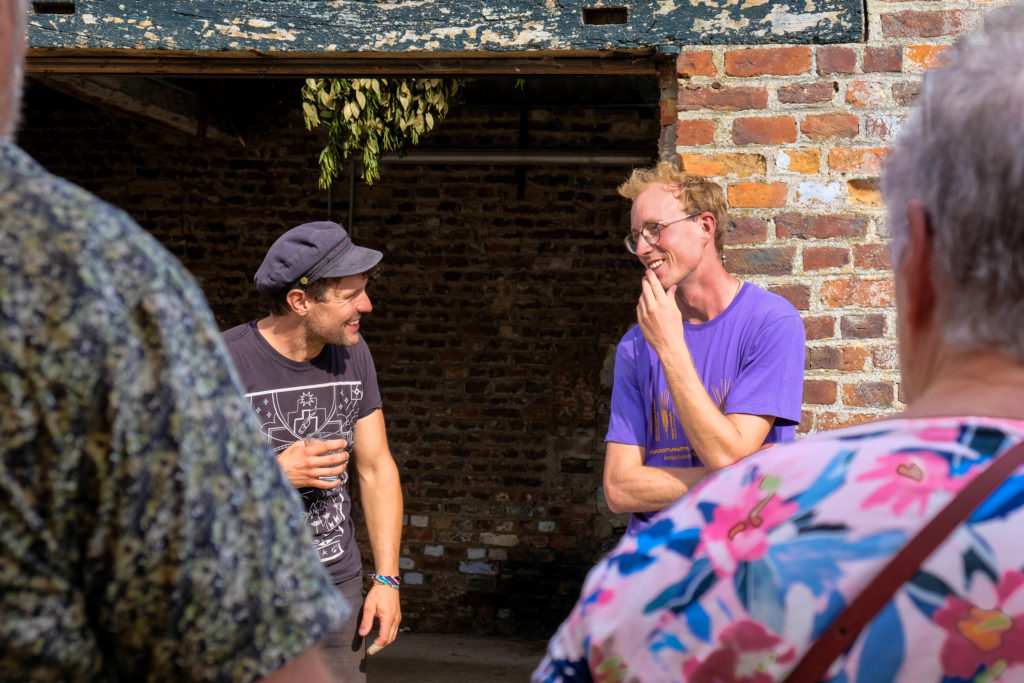
* The “Sencier Method” was developed by French agronomist Michel Sencier, a pioneer in organic farming. He travelled the length and breadth of France and Belgium to give technical advice to organic and aspiring organic farmers. Michel Sencier died in 2012. Today, seed mixes, particularly for grassland, are still very popular and are still sold under the name “Mélanges Sencier”.
** UNAB is a 100% organic farming union representing a large number of organic farmers in the Walloon Region. Since it was founded in 1984 by organic pioneers, our team has been committed to promoting and recognising productive agriculture that maintains a high-quality environment.
More
Old Varieties and Short Production Circuits to Rebuild “Rural Solidarities”
Beyond the Harvest: Health Effects of Pesticides on French Farmers
Catcher in the Rye: Breeding Diversity for Unpredictable Conditions



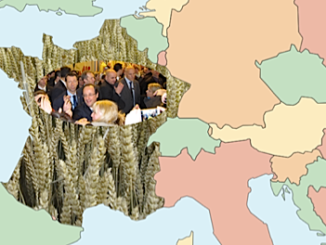
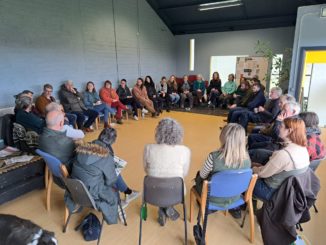
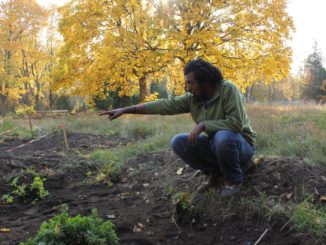
1 Trackback / Pingback
Comments are closed.